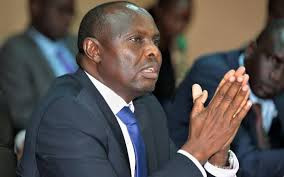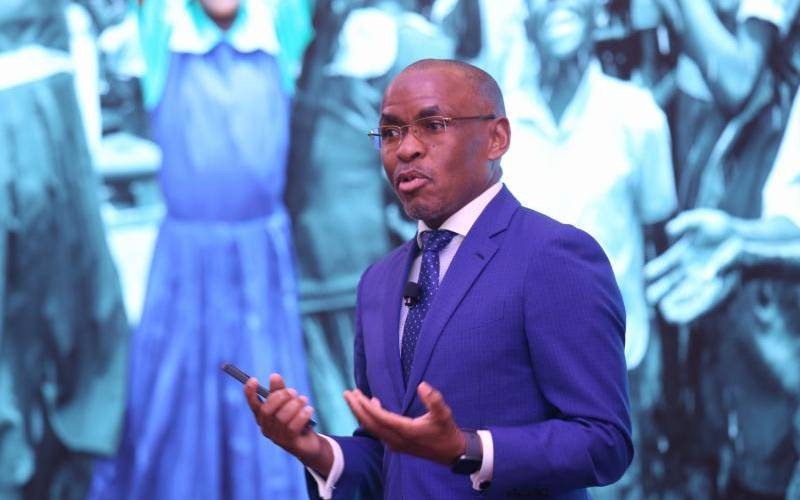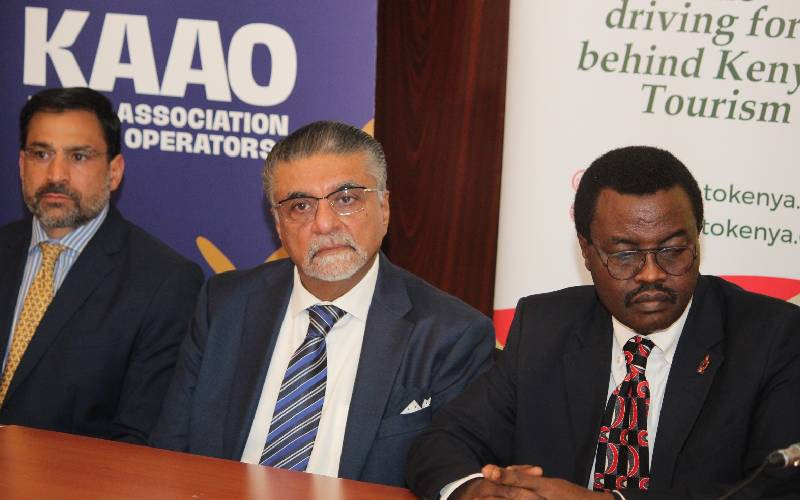
In the journey of every nation, there arise moments when the integrity, capacity, and ethical bearings of its public service are laid bare, and the very character of governance is measured against the demands of reform, renewal, and the public good.
Since 2022, Kenya has embarked upon a deliberate course of public service transformation, strengthening professionalism, accountability, and effectiveness at the heart of the State. The pursuit of these reforms must be accompanied by a deeper moral awakening, for institutions alone cannot secure enduring progress.
The reflection on our national values remains an urgent task. The call to reaffirm ethical purpose and rekindle the moral consciousness of our Republic transcends occasions and anniversaries. As we advance economic transformation and institutional regeneration, our progress must be guided not only by sound policy and performance but by a moral vision that defines our national purpose and directs our collective effort towards the common good.
Nations attain greatness and endure not through abundance of resources or technical prowess but through constancy in virtue. Values constitute the moral grammar of a nation; they shape the character of citizenship, the ethic of leadership, and the legitimacy of institutions. They are the invisible scaffolding of nationhood, the quiet architecture that binds the governed to the governors, the individual to the collective, and the present to the future. Kenya’s national journey, from independence to the present day, has been illumined by these ideals, unity, justice, integrity, patriotism, and service, which have given coherence to our democracy and resilience to our Republic.
The Constitution of Kenya, 2010, remains the most articulate codification of this moral heritage. Article 10 enshrines national values and principles of governance as binding on all State organs, public officers, and citizens alike. Patriotism, national unity, human dignity, equity, social justice, inclusiveness, equality, integrity, transparency, and accountability are not rhetorical ornaments in our constitutional text, but the moral infrastructure of the Republic. They define the philosophy of governance, the ethics of leadership, and the expectations of citizenship.
In our time, the relevance of these values has become even more pressing. The fragmentation of public trust, the spread of misinformation, and the global diffusion of cynicism threaten the moral coherence of societies everywhere. Kenya is not immune to this drift. The remedy lies not in legislation alone but in the restoration of a shared ethical consciousness, a civic awakening that reclaims moral clarity as the first principle of governance. National unity reminds us that diversity is not a fracture but a foundation; inclusiveness ensures that every citizen partakes in the promise of nationhood; and transparency demands that authority be exercised with restraint, justice, and accountability.
These principles are not abstract ideals; they are the enduring architecture that gives shape and coherence to our development vision. The Bottom Up Economic Transformation Agenda is, at its core, a moral economy, an affirmation that growth must be equitable, that opportunity must be justly distributed, and that prosperity must serve the dignity of every citizen. Agricultural reforms speak to stewardship and sustainability; the empowerment of micro, small, and medium enterprises illustrates fairness and innovation; and investment in health, education, housing, and digital infrastructure transforms social justice from aspiration to reality. Values, therefore, are not peripheral to development, they are its animating spirit.
In recent years, deliberate efforts have been undertaken to weave ethics into the institutional fabric of governance. The Presidential Report on National Values and Principles of Governance, tabled annually in Parliament pursuant to Article 132(1)(c), has entrenched ethical accountability across the public sector. Ministries, departments, and agencies are now evaluated through value based indicators, ensuring that integrity and fairness are measurable elements of performance. The Kenya School of Government continues to cultivate ethical leadership, while the Competency Based Curriculum integrates moral reasoning and civic virtue, preparing a generation of citizens whose patriotism is both reflective and principled. The Directorate of National Cohesion and Values, working alongside the National Cohesion and Integration Commission, county governments, civil society, and the private sector, continues to advance the moral renewal of our Republic. These efforts form part of a broader project of governance revitalisation, one that recognises that sustainable reform begins with ethical foundations.
Recent national moments have reminded us that genuine recognition must arise from service, not from self promotion. The passing of the late Rt. Hon. Raila Odinga has invited the nation to reflect upon a life shaped by conviction, endurance, and a steadfast faith in Kenya’s promise. When President William Ruto awarded him, in his memory, the nation’s highest honour, the Chief of the Golden Heart (CGH), in tribute to his lifelong service, it stood as a profound affirmation of the principles that sustain public life: courage, sacrifice, and fidelity to justice and national unity. Raila’s public career reminds us that leadership is not a quest for privilege but an exercise in duty, and that true honour is reserved for those who dedicate their lives, often at great personal cost, to the dignity, peace, and cohesion of their country.Public servants must therefore aspire to such heights of moral and civic excellence. The distinction of service does not lie in titles, wealth, or proximity to power, but in fidelity to duty and in the quiet pursuit of public interest. Those entrusted with authority must resist the temptations of self aggrandisement, which breed corruption and erode public trust. True honour lies not in self glorification but in service that uplifts, reforms, and dignifies the people of Kenya.
The public service, as the central instrument of governance and the custodian of the State’s moral authority, must embody integrity, professionalism, accountability, and a genuine devotion to public purpose. It is through an ethical and competent public administration that policy is translated into tangible progress, institutional legitimacy is reinforced, and citizens’ trust is preserved. The private sector must root enterprise in fairness, innovation, and social responsibility; the media must act as a sentinel of truth and justice; and educators and faith leaders must shape the moral imagination of society, nurturing generations able to discern right from expedience even amid moral ambiguity. Above all, citizens must uphold the rule of law, respect institutions, and act always with a consciousness of the collective good.
Progress, stability, and prosperity are sustained not by the loudest voices or the deepest coffers, but by integrity, justice, and a shared sense of purpose. Our Republic’s renewal will be secured not through expedience but through fidelity to enduring principles. In an age of moral fatigue and material excess, it is these timeless virtues, fairness, responsibility, hard work, and respect, that preserve our national dignity and ensure continuity.
History reminds us that the greatness of a nation is measured not by wealth or power but by the depth of its values and the constancy with which its people uphold them. Kenya’s journey, from the struggle for independence to the strengthening of democracy, has been guided by faith in principles stronger than circumstance. Our future will be secured by our collective resolve to live by these founding ideals, patriotism, unity, justice, integrity, and service, which remain the true pillars of governance, the currency of leadership, and the surest path to a cohesive and prosperous nation.
Felix Koskei is the Chief of Staff and Head of Public Service







